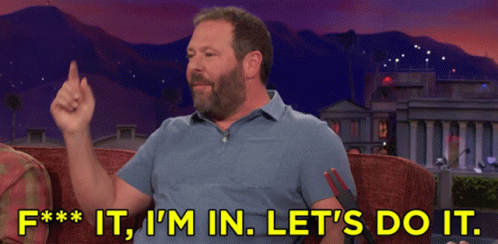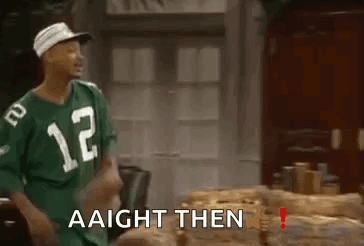I personally feel like it’s the opposite. I think that knowing the backstory helps people understand where they’re each coming from and have more sympathy for each other. 
I don’t think that exposure is making you desensitised in a way that’s harmful – it’s probably a good thing. I mean, when someone you know is struggling, do you want to break down with them to show how much you care? Or do you want to be the rock that keeps them steady? The latter is the more objectively helpful person, and even though the former might seem superficially good, it’s very self-serving. You can be a caring person without feeling the suffering of others personally. 
A more extreme example is that when someone gets severely injured, do we want to panic at the sight of the injury and its consequences, or do we want to get straight down to the business of fixing it? That requires some degree of desensitisation. I have some contrasting examples:
 Content warning: tales of accidents that result in injuries.
Content warning: tales of accidents that result in injuries.
- When I was working with someone in a warehouse, the man I was working with accidentally cut himself on the wrist with a box cutter. He didn’t nick a vein – there wasn’t even flowing blood – but the location and the fact that it was a cut sent him into a panic. I sat him down, told him to keep pressure on it (for the sake of his anxiety), and we dealt with it.
- When I recently cut my thumb, it did nick a vein, and I was splurting blood all over the place. My partner and I got up and focused on cleaning the wound and stopping the bleeding. We did such a good job on the serious cut that it healed quicker and without scarring, while a nearby scratch is still healing and might even scar.

Anyway, while those are very physical examples, you can also imagine how being composed during serious emotional situations can be more helpful than the alternative.
On a side note, I don’t think we can take everyone at their word or assume that they’re rational actors and that what they’re doing at any moment in time is always the right thing. This leads us to either allow harmful people into our lives or make us incapable of helping people when they need it but don’t ask for it. People don’t deserve to suffer just because they don’t ask for help. But why is this relevant, one might ask? Because our ability to question why things are a certain way helps us figure these things out. 
Also tangentially related… When we’ve explained economics and politics to people, more knowledge about “why” helped change their views from finding everything to be “frustrating” and “stupid” or from seeing “this is evil” and “that is good” to understanding why people can seem to do these “evil” or “crazy” things. 
Spoiler alert: The people being scrutinised tend to be following different incentives, and it’s common for people not to realise this. Instead, they project their own thinking onto them.
So, superficially, I can see why it would make sense to back off from having an opinion at all because there is the risk of having an uninformed opinion. But that means that we never break through that barrier of uninformed opinions on the way to informed opinions. That’s why talk is so valuable: talk allows us to express the things that we think that turn out to be wrong, which lets those opinions be challenged and ultimately changed. (Or perhaps we help others change theirs.) It’s a very collaborative thing. 
By not having opinions, we protect ourselves from ever being wrong, challenged, or called out, and therefore feeling the shame and other negative feelings that come with that. But we also protect ourselves from the growth that allows us to overcome the struggles and challenges in life. Nothing ever worth doing came easily, and thinking that we can grow without growing pain has become the hallmark of the trend of toxic positivity.
It’s kind of like how I’ve recently said on that thread about trying to forget something: the person can superficially forget, but that doesn’t mean the knowledge or event won’t still affect their lives going forward. Instead, it just makes it harder to later diagnose and deal with. So, in the end, I think it’s ignorance that makes the world more frustrating, and the best one can do is try to ignore it, but then they just become more sheltered (because they aren’t exposed to new ideas), closed off and rigid in their thinking (because they aren’t challenged), and stagnant (because the lack of challenge stunts growth).
Another analogy might be that when you joined and started working with Loki, you saw that it was knowledge that set you free from your fears rather than trying to push them away and not think about them, right? 
Anyway, sorry for the wall of text. At the end of the day, it’s just my opinion.  But I appreciate being able to have the discussion because even if no one ever reads what I ramble about, I help myself by working through my own beliefs, discarding what doesn’t make sense and better understanding what does.
But I appreciate being able to have the discussion because even if no one ever reads what I ramble about, I help myself by working through my own beliefs, discarding what doesn’t make sense and better understanding what does. 
![]() It’s to learn to reflect the spirit of nature, nature has a storm, and trees get damaged (it has a bad day), nature doesn’t *stress * over it, dwell on it, compare it to yesterday, last year, blame the rain or tell itself it was wicked. It just has the storm, and the trees just got damaged. Nature experiences a beautiful day, it enjoys it, but it doesn’t start developing opinions on why it’s having a beautiful day, it just enjoys the beautiful day. (So you can enjoy your drink
It’s to learn to reflect the spirit of nature, nature has a storm, and trees get damaged (it has a bad day), nature doesn’t *stress * over it, dwell on it, compare it to yesterday, last year, blame the rain or tell itself it was wicked. It just has the storm, and the trees just got damaged. Nature experiences a beautiful day, it enjoys it, but it doesn’t start developing opinions on why it’s having a beautiful day, it just enjoys the beautiful day. (So you can enjoy your drink ![]() )
)![]()


